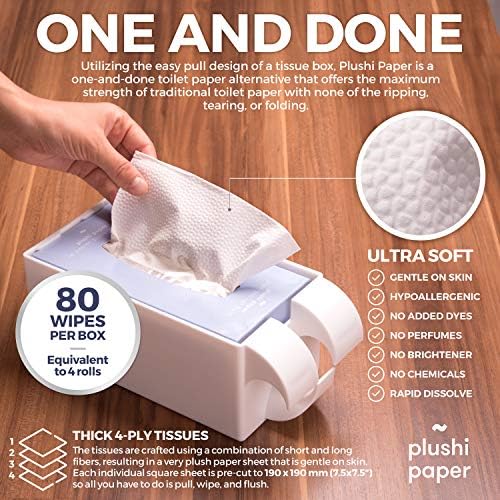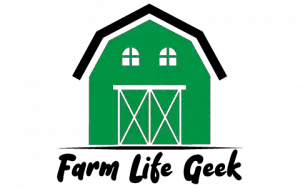There is a prohibition against flushing the toilet on Shabbat, as it is considered a form of melacha (creative work). There are a number of ways to circumvent this issue, such as using a pre-flushed toilet or having someone else flush the toilet for you.
- Fill a small cup or bowl with water
- Pour the water into the toilet bowl, aiming for the hole in the center
- Repeat step 2 until the bowl is full
- Let the water sit for a few minutes to allow it to do its job before flushing
Episode 6: Can I Flush the Toilet on Shabbos?
Can You Shower During Shabbat?
There is much debate amongst Jews as to whether or not one can shower during Shabbat. The main issue at stake is the question of water usage. One of the key principles of Shabbat is that one should not engage in any melacha, or creative work.
Melacha includes activities such as cooking, sewing, and writing. However, some argue that bathing does not fall under the category of melacha since it is not an act of creating something new; rather, it is simply a matter of cleanliness.
Others take a more lenient approach, saying that as long as one takes care not to use too much water (i.e., no long showers), then showering on Shabbat is permissible.
Ultimately, each individual must decide what they feel comfortable doing on Shabbat with regards to showering.
Why Can’T You Use Toilet Paper on Shabbat?
Shabbat is a day of rest and relaxation, and Jews are not allowed to do any work on this day. This includes using toilet paper! Using toilet paper would be considered as doing “work” since you’re tearing off a piece of the roll and using it to clean yourself.
What Activities are Forbidden on Shabbat?
There are many different opinions on what activities are forbidden on Shabbat, but there are some that are universally accepted. The most common prohibitions are those against work, cooking, and travelling. Other activities that are often forbidden include using electricity, writing, and carrying objects in public spaces.

Credit: www.amazon.com
Can You Brush Your Teeth on Shabbat
It’s a common question – can you brush your teeth on Shabbat? The answer may surprise you.
While the Talmud does prohibit using a toothbrush on Shabbat, there is some leniency when it comes to dental hygiene.
In general, if something is considered “muktzeh” (a prohibited object on Shabbat), it cannot be used. However, there are some exceptions to this rule.
One exception is if the muktzeh object is being used for its primary purpose.
For example, a toothbrush can be used on Shabbat if it is being used to brush teeth. Another exception is if the muktzeh object is being used in a way that will not cause damage or create waste. For example, a toothbrush can be used on Shabbat if it is being used to clean dentures or braces.
So, while you technically should not use a toothbrush on Shabbat, there are some circumstances where it may be permissible. When in doubt, consult with your rabbi or halachic authority.
Ridiculous Sabbath Rules
Sabbath rules are a controversial topic among Christians. Some people believe that there are certain things you should or shouldn’t do on the Sabbath, while others believe that it’s a day of rest and relaxation. There are a variety of opinions on the matter, but one thing is for sure – the Sabbath is a special day set aside by God for His people.
There are a few different interpretations of what the Sabbath looks like. For some, it means abstaining from work entirely. This means no cooking, cleaning, laundry, etc.
Basically, if it’s something that can be considered “work”, then it’s off limits on the Sabbath. Others take a more relaxed approach and believe that as long as you’re not working hard or doing anything that would exhaust you, then you’re good to go. This could include things like going for a walk, reading a book, or spending time with family and friends.
Ultimately, it’s up to each individual to decide how they want to observe the Sabbath. There is no right or wrong way to do it – it’s simply about setting aside time to rest and reflect on God and His goodness.
What is a Kosher Bathroom
A Kosher bathroom is a room in a house or other building that contains a sink, toilet and shower or bathtub which meet the requirements of Jewish law. The word “kosher” comes from the Hebrew word meaning “fit” or “proper.” In order to be considered kosher, a bathroom must have two separate areas: one for washing hands and face (the “netilat yadayim” area), and one for using the toilet (the “mikveh” area).
Each of these areas must have its own sink, towel and soap. The door to each area must be able to close completely, so that water does not splash from one area into the other.
There are several reasons why it is important to have a kosher bathroom.
First, Jewish law requires that people wash their hands before they eat. This can be done at a regular sink, but it is more hygienic to wash up in a dedicated area where there is no risk of contamination from previous users. Second, Jewish law requires that people immerse themselves in water before they pray or perform certain religious rituals.
This can be done in any body of water, but many people choose to do it in a special pool called a mikveh. A mikveh must be large enough for a person to fully submerge their body, and it must be filled with rainwater or spring water that has not been previously used. Finally, having separate areas for netilat yadayim and mikveh helps to keep the two activities separate and prevent cross-contamination.
Can You Go Out to Eat on Shabbat
Yes, you can go out to eat on Shabbat. There are a number of restaurants that cater to those who observe the Sabbath. These establishments typically offer a variety of traditional Jewish dishes, as well as other kosher meals.
Jewish Toilet Hygiene
As anyone who has been to Israel can attest, Jewish toilet hygiene is of the utmost importance. The country has some of the cleanest and most well-kept toilets in the world. This is not by accident – there are strict laws and regulations in place regarding toilet hygiene, and Israelis take them very seriously.
There are several key aspects to Jewish toilet hygiene. First, all toilet paper must be disposed of in a special bin, not in the regular trash can. This is because Jews consider toilet paper to be ritually impure and it must therefore be kept separate from other waste.
Second, all toilets must be equipped with a bidet attachment for washing after use. This is an important step in the Jewish cleansing ritual known as netilat yadayim, which requires that one wash their hands with water after using the bathroom. The bidet attachment helps ensure that this ritual can be carried out properly.
Finally, it is important to always flush the toilet after use. In many public restrooms in Israel, there are signs reminding people to do this – something that would likely be unnecessary in most other countries!
Overall, Jewish toilet hygiene is taken very seriously and is an essential part of life in Israel.
By following these simple guidelines, you can help keep your restroom clean and respectful of others’ religious beliefs.
Shabbat Rules
Shabbat is the Jewish day of rest and it lasts from sundown on Friday until nightfall on Saturday. The main rules of Shabbat are to refrain from work, refrain from using electricity and fire, and to enjoy quality time with family and friends.
There are many other specific rules that vary among different sects of Judaism, but these are the 3 main ones.
By refraining from work, Jews are able to take a break from the hustle and bustle of everyday life and focus on their relationship with God. Not using electricity or fire helps Jews disconnect from the material world and connect more deeply with their spirituality. And spending time with loved ones is a way to cherish relationships and create lasting memories.
Shabbat is a special day that allows Jews to recharge spiritually, physically, and emotionally. By following the rules of Shabbat, we can create a sacred space in our lives where we can slow down, reflect, pray, and connect with those we love most.
Can You Open Doors on Shabbat
According to the Shulchan Aruch, it is permitted to open doors on Shabbat. However, there are a few conditions that must be met in order for this to be permissible. First, the door must be opened with a utensil, such as a key or a knocker.
Second, the door must not be left open after it has been opened; it must be closed immediately. Finally, one may not open the door if doing so would cause an object to fall or create a loud noise.
Can Jews Tear Toilet Paper on Sabbath
There is a common misconception that Jews are not allowed to tear toilet paper on the Sabbath. This is not true! There is no rule in Judaism that prohibits tearing toilet paper on the Sabbath.
In fact, many Orthodox Jews do tear toilet paper on the Sabbath. The only time it would be prohibited is if doing so would cause someone else to violate the Sabbath, such as if one were to tear toilet paper for another person who then used it to clean up after using the restroom.
Conclusion
Shabbat is a Jewish day of rest, and traditionally, Jews are not supposed to do any work on this day. This includes things like using the toilet. Some people argue that flushing the toilet is considered “work” and therefore should not be done on Shabbat.
Others say that since flushing the toilet is necessary for hygiene, it is allowed. Ultimately, it is up to each individual to decide what they feel comfortable doing on Shabbat.
